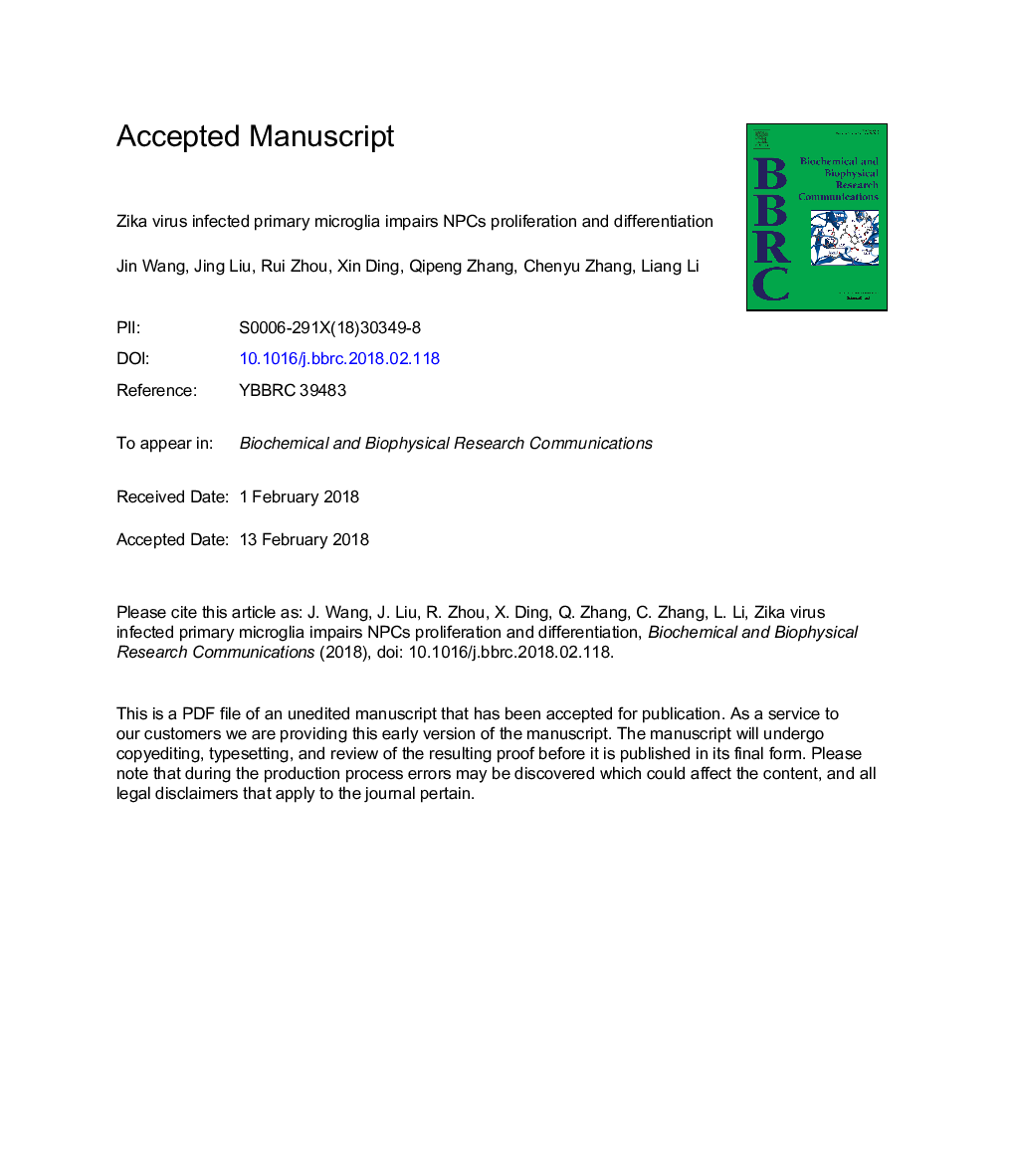| Article ID | Journal | Published Year | Pages | File Type |
|---|---|---|---|---|
| 8294008 | Biochemical and Biophysical Research Communications | 2018 | 28 Pages |
Abstract
Zika virus (ZIKV) can lead to severe birth defects especially microcephaly in newborns by infecting human neural progenitors and impairing brain development. However, as the resident immune cells in the brain, the role of microglia in the ZIKV pathology is not clearly defined. To understand the interplay between immune response and neural cells, we investigate the interaction between microglia and NPCs during ZIKV infection. Our results demonstrate that primary microglia infected with ZIKV induces an inflammatory response similar to that in human, producing high level of tumor necrosis factor alpha (TNF-α), interleukin 6 (IL-6), interleukin 1β (IL-1β) and inducible nitric oxide synthase (iNOS). Furthermore, conditional medium (CM) of ZIKV infected microglia showed inhibitory effects on cell proliferation and neuronal differentiation of neural precursor cells (NPCs) derived from E14 mice brain. Blocking cytokines in the CM remarkably improved neurogenesis and decreased astrocytic differentiation of NPCs. Together, our results suggest that microglia mediated neuroinflammation plays an important role in neuropathogenesis during ZIKV infection.
Related Topics
Life Sciences
Biochemistry, Genetics and Molecular Biology
Biochemistry
Authors
Jin Wang, Jing Liu, Rui Zhou, Xin Ding, Qipeng Zhang, Chenyu Zhang, Liang Li,
